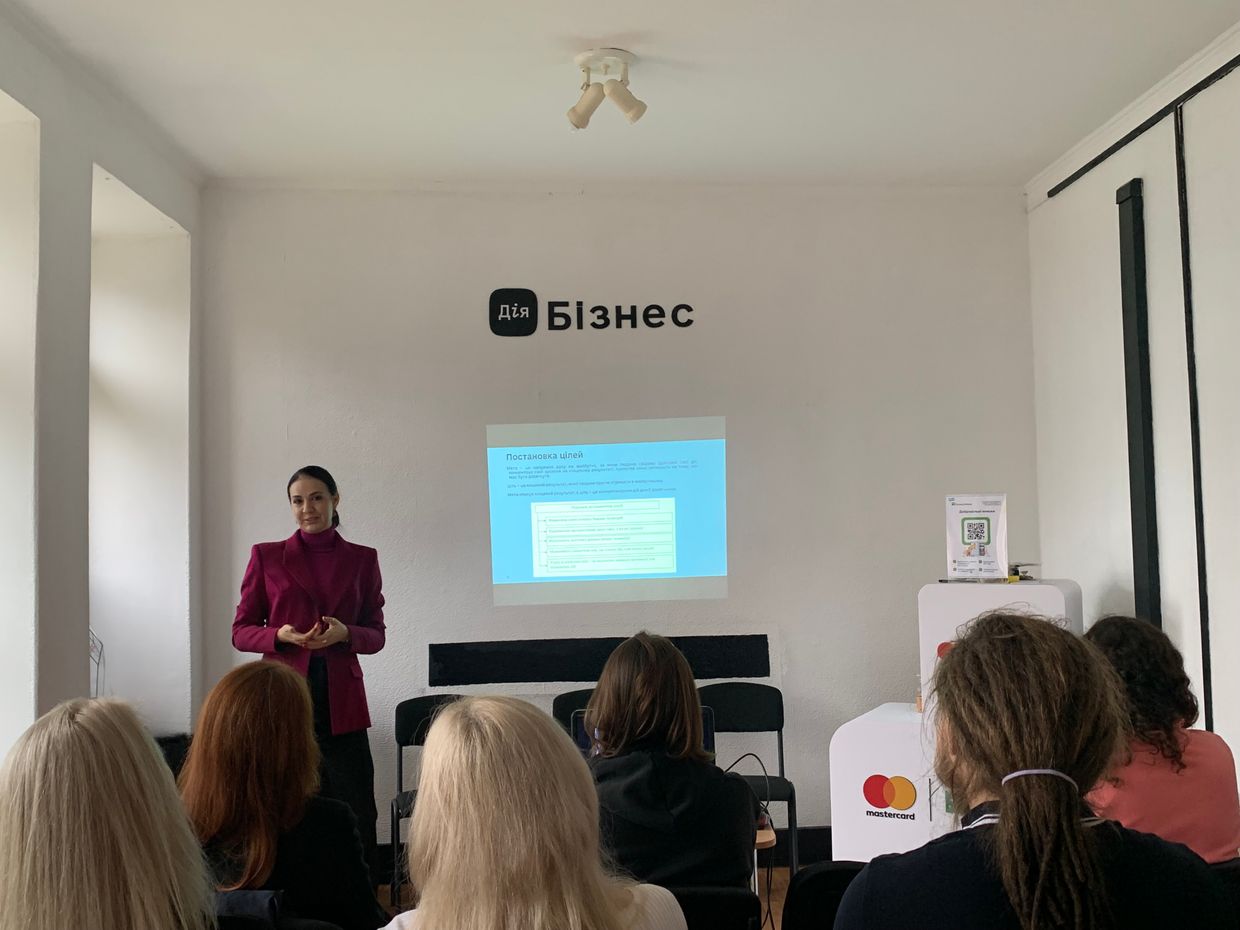The following is the Nov. 7, 2023 edition of our new Ukraine Business Roundup weekly newsletter. To get the biggest news in business and tech from Ukraine directly in your inbox, subscribe here.
From the bottom up
Not long before the full-scale invasion of Ukraine, a good friend of mine in Ukraine bought a small 3D printer. It was supposed to be more of a hobby pursued in between working and raising three children.
In the wake of Russia's invasion, Yulia lost her job. Fruitless visits to the unemployment office and a conversation with an acquaintance brought her to a free consultation at the local Diya Business office in Kremenchuk to set up a FOP — the most common business registration for small and medium-sized businesses, as well as contractors, in Ukraine.
Fast forward to November 2023 and Yulia can barely keep up with the orders for her 3D printed models for candle and soap makers in Ukraine and abroad, as well as her homemade decorations. Three 3D printers now work full-time in her living room.
The story is undoubtedly a testament to Yulia’s tenacity. But in my conversations with her, the inspiration and skills she has drawn from the Diya Business workshops she regularly attends are impossible to ignore.
While certain parts of Ukraine’s government get bogged down by bad habits, bureaucracy, and corruption, the Digital Transformation Ministry has sought to create a more transparent state by bringing government services online. The ministry’s flagship project is the Diya app, launched in 2020, which allows its users to store documents like driver's licenses and pay taxes.
Under the Diya umbrella, the ministry created Diya Business to support Ukrainian small and medium-sized businesses. As part of the program, the ministry offers online and in-person services through its local centers, including help applying for grants and free workshops on a variety of topics.
What struck me, though, was not all of Diya’s offerings, but rather the ways it is helping change business culture in Ukraine. At a training on “time management” in Kremenchuk this past Saturday, the group of business owners present told me that participating in Diya Business wasn’t just about learning how to grow their own business, but about being part of a business culture in Ukraine that drastically differs from the “wild capitalism” of the early post-Soviet era.
When one of only two men in the room asked if the women present had faced sexism in the workplace, the answer was a resounding yes, but what followed was an open and lively discussion about the role women should play in business in a future Ukraine. It was hard not to get inspired.
These are just my first impressions. I’m looking into this and hope to bring you more soon.
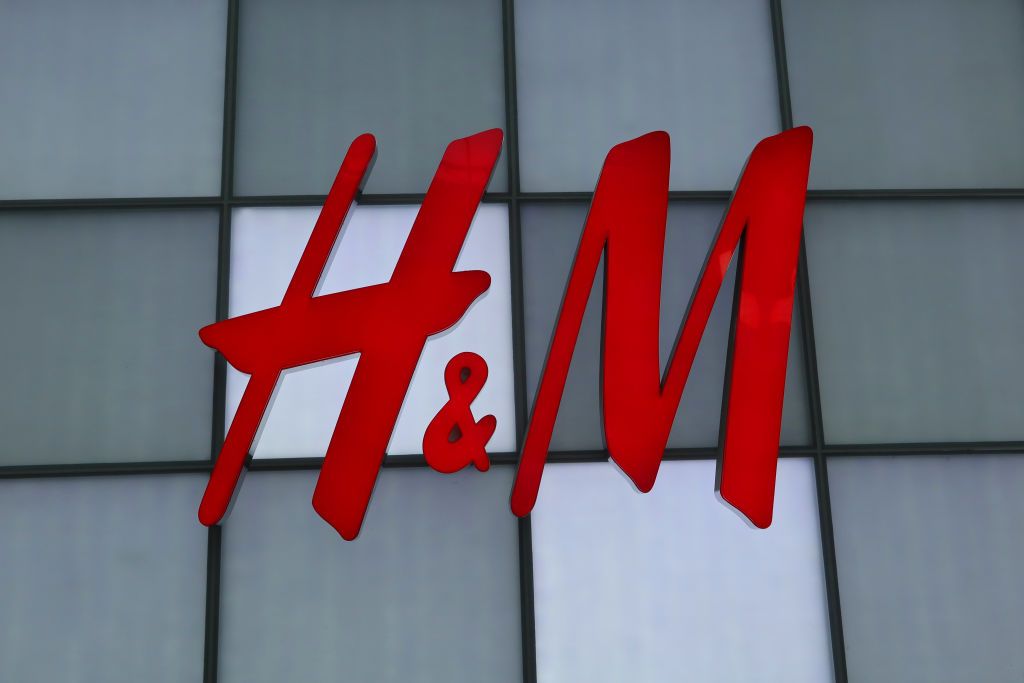
The big return
Following more than a year of negotiations between Ukraine’s diplomats and business leaders across the world, Swedish fashion giant H&M announced that it will reopen its stores in Ukraine this month. The company, along with several other foreign brands, suspended operations in February 2022 following the start of Russia’s full-scale invasion.
The return of international giants such as H&M, Zara, and Swedish furniture retailer Ikea (headquartered in the Netherlands) is “one of the goals of Ukrainian diplomacy today and one of the most anticipated decisions for Ukrainians,” Foreign Minister Dmytro Kuleba told the Village.
“It is also a signal of confidence in Ukraine's victory and the reliability of partnership with our country,” he said, adding that "Ikea's return is actively underway, and I expect that there will be good news in this area soon as well." Ikea has not yet publicly commented on its return.
So far, McDonald’s is the only major international company to have returned after shutting its doors in the first days of the invasion. The hope, according to Kuleba, is that the return of such big names will have a “domino effect,” encouraging other players to return and make the ministry’s job of future negotiations easier. Ensuring that there are safe conditions for employees — which includes access to bomb shelters — is paramount.
In the meantime, many in Ukraine (including yours truly) are impatiently waiting for the return of Inditex — the owner of popular clothing brands Zara, Bershka, Massimo Dutti, Stradivarius, and Pull&Bear.
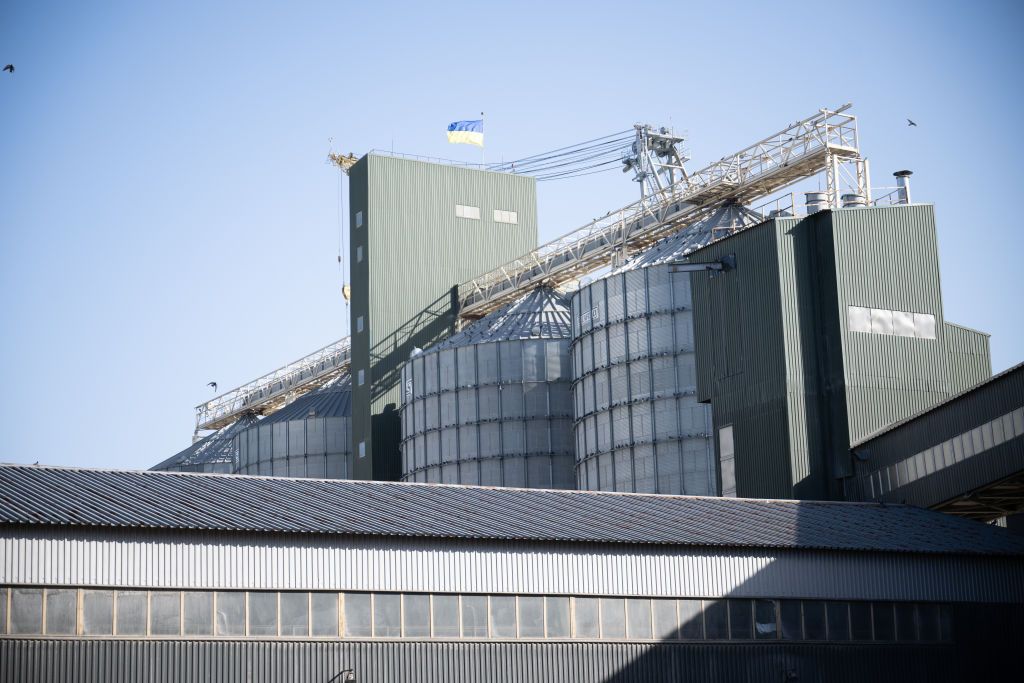
Risky business
As Ukraine looks to attract private investment, war insurance is crucial. It’s not that businesses don’t want to invest in Ukraine, but the idea of putting money in a country where Russian attacks can kill employees and destroy assets has turned investors off.
The European Bank for Reconstruction and Development and the British government announced on Nov. 2 a pilot project of war risk insurance to help private sector companies do business in Ukraine and aid in the country’s reconstruction efforts.
"U.K. businesses have the expertise and desire to help Ukraine rebuild," but are held back by a lack of insurance, U.K. Minister of State for Business and Trade Timothy Elliot-Murray-Kynynmound said in a statement.
A handful of insurance projects against war and political risks have already taken off in Ukraine thanks to cooperation with international financial organizations and national export credit agencies of partner countries, Ukraine’s Economy Minister Yuliia Svyrydenko said recently.
Ukrainian investment bank Dragon Capital was one of the first investors in Ukraine to have secured coverage against war-related damages through the World Bank’s Multilateral Investment Guarantee Agency, or MIGA, for a nearly $10 million investment in an industrial park outside of Lviv.
And U.S. risk management firm Marsh McLennan recently launched a database with the Ukrainian government to track damages caused by Russia’s invasion to help investors and private companies better understand the impact of the war to date and the degree of war risk. Their database shows that 66% of Ukraine hasn’t suffered physical damage from the war since February 2022. This year, 76% of communities had no war-related incidents.
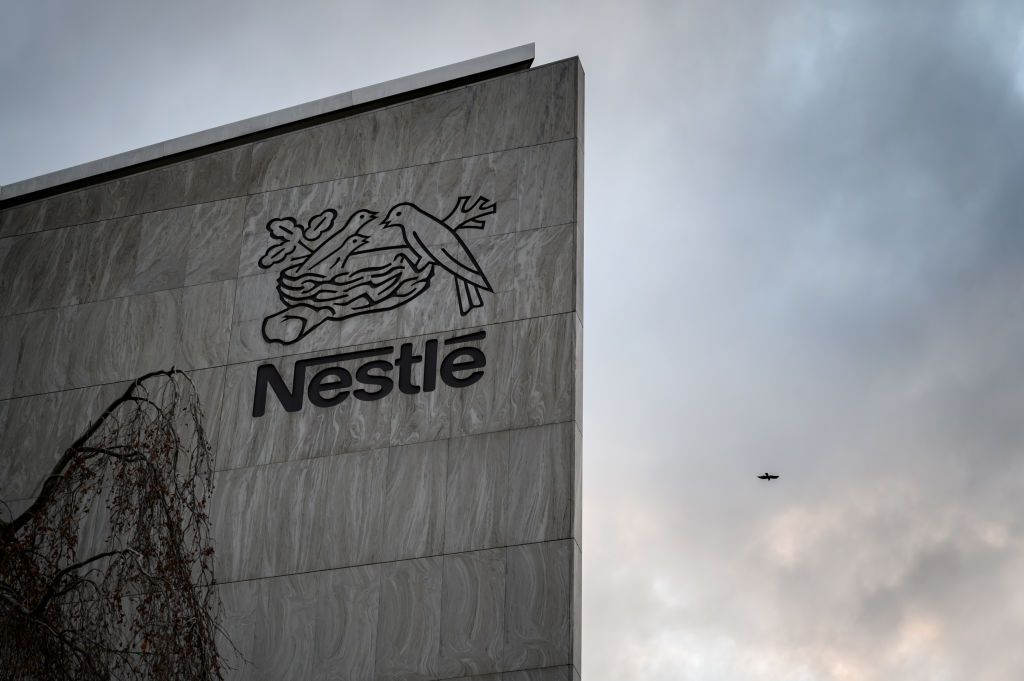
Blacklisted
Ukraine added Swiss-owned food giant Nestle to its list of "international sponsors of war" for its continued business in Russia, the National Agency on Corruption Prevention (NACP) announced on Nov. 2.
The world’s largest food company joins the likes of PepsiCo, Mars, and Unilever on Ukraine’s blacklist. While the designation carries no legal consequences for the companies, it is designed to cause “powerful reputational” harm, according to the NACP.
Nestle said in March 2022 that it would halt its operations in Russia, with the caveat that it would continue to provide the country with "essential products" such as baby formula. But in February 2023, the media reported that Russian stores were still full of typical Nestle products.
The NACP also alleged that Nestle has continued to covertly import technical equipment into Russia to "further develop its business" there.
Nestle may now be an enemy of the NACP, but the company employs around 5,500 people in Ukraine and has donated more than $22 million to local humanitarian organizations in Ukraine and to help those displaced by the war in neighboring countries, according to the company.
Similarly to the Foreign Ministry hoping that H&M’s return will have a domino effect on other companies coming back to Ukraine, the NACP hopes to encourage companies to leave Russia, reducing the country's "financial and technological ability to kill Ukrainians."
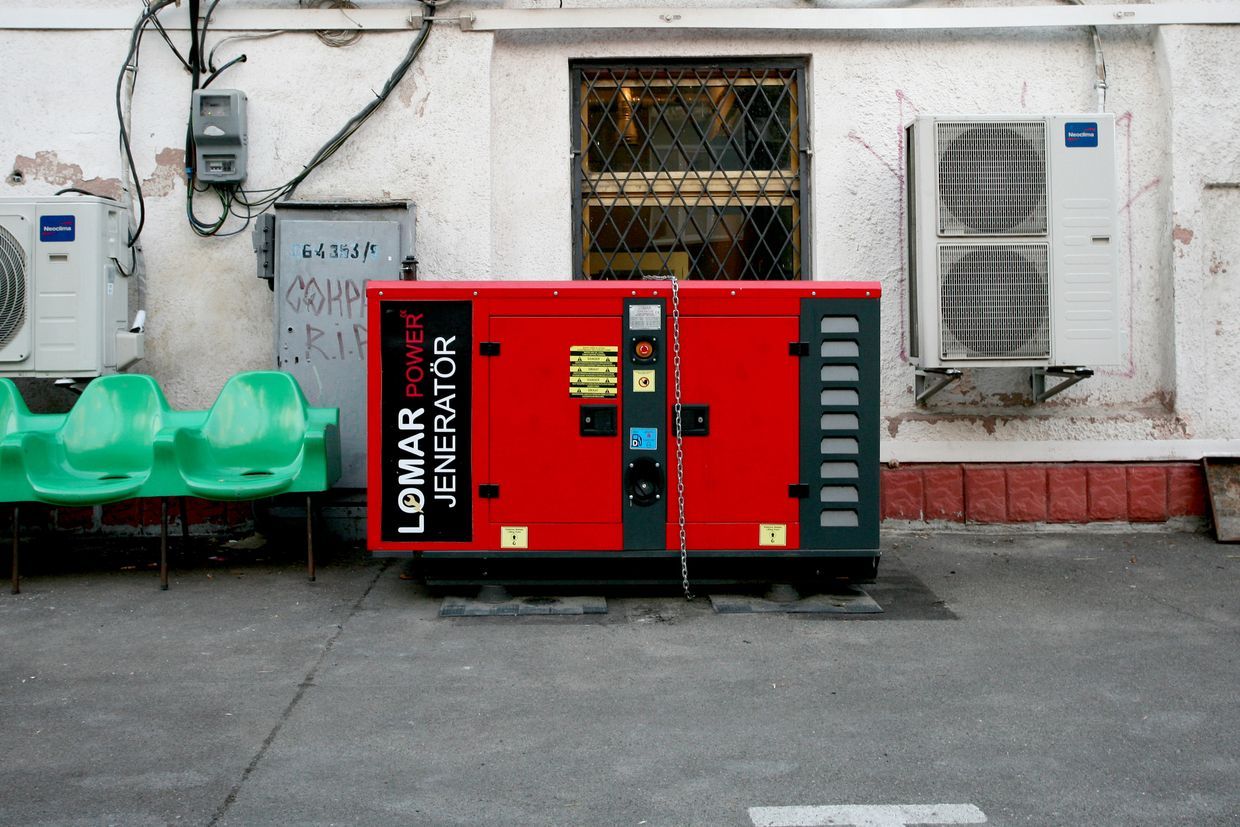
Preparing for the worst
The following is brought to you by Kyiv Independent Business Reporter Dominic Culverwell.
Ukrainian businesses are preparing for the worst amid warnings from the military that Russia will launch another series of mass strikes on Ukraine's energy system.
I met with local businesses in Kyiv recently to see how they’re preparing and what they learned from last year’s attacks. The capital has so far been spared from strikes on its energy system, but everyone I’ve talked to around here expects that to change in the near future.
The previous fall and winter was incredibly tough with many businesses seeing a significant drop in earnings. And yet, I couldn’t help but be impressed by the creativity and resilience businesses exhibited.
For many, the real lifesaver has been securing a generator. The chunky contraptions littering Kyiv’s streets may be an eyesore, but they ensure businesses will have power during blackouts. Talkies, a trendy cocktail bar in the Podil neighborhood, hooked up its lighting to a car battery, while candles and battery-powered fairy lights adorn the popular Avtostantsiya pizzeria.
Trust in the government and energy companies to restore power quickly is high and those I spoke with believe the worst is already over. “I think that if the situation is similar to last year, we will survive,” said Anya Selezen, the general manager of Avtostantsiya.
Read the full story here.
What else is happening
Finance Ministry: Ukraine looking at $29 billion budget deficit next year in absence of foreign help. As Ukraine’s parliament gets ready to pass the country’s budget for 2024, Kyiv faces a $29 billion hole without further financial support from its partners, Finance Minister Serhiy Marchenko told Politico. “Preservation of macroeconomic stability is quite important, because in addition to the war we would have an economic crisis,” he said. “If Ukraine will be in crisis, you will have spillover effects in the EU.”
Ukraine’s National Bank plans to lower key rate to 15% in December. The central bank’s Monetary Policy Committee expects official borrowing costs to decrease by one percentage point to 15% in December, the bank said on Nov. 7. The announcement also said that the scope for easing interest rates in 2024 appears limited for now due to the bank’s plans to ease its war-time monetary regime and an increase in inflation next year. “However, in the event of positive changes in the balance of risks and better-than-expected foreign exchange market conditions, the NBU will be able to continue its gradual easing of interest rate policy,” the bank said.
Polish truckers block border crossings with Ukraine over loss of business. Polish truckers blocked roads to three border crossings with Ukraine on Nov. 6, to protest what they say is government inaction over a loss of business to foreign competitors caused by Russia’s invasion of Ukraine, Reuters reported. Truckers from Ukraine have been exempt from needing permits to cross the Polish border since the start of Russia’s war in February 2022. Polish truckers say Belarusian and Russian companies have also been setting up Polish entities.
International court rules Russia must pay $267 million to energy giant DTEK. The International Court of Arbitration in The Hague ruled that Russia must pay $267 million in damages to Ukraine's largest private energy company DTEK, the company announced on Nov. 2. The payment is in compensation for assets in Crimea that Russia seized from the company when it illegally annexed the peninsula in 2014.
Ukraine announces new export rules for agricultural products. Ukraine has introduced mandatory registration for agricultural export companies designed to prevent abuse of laws like tax avoidance in the export of food, the Agriculture Ministry announced on Nov. 1. Companies will have to apply to be included on the list of verified exporters in order to export goods like grain and processed oils.




